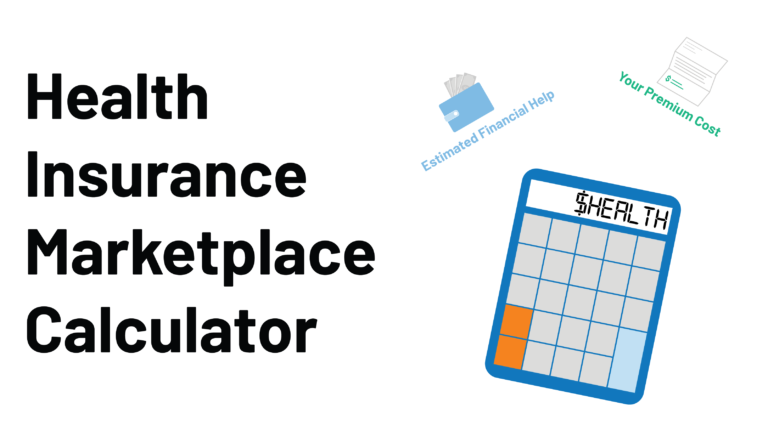Unlocking Variable Life Insurance: Maximizing the Potential of Your Policy
In today’s ever-changing world, having a solid financial plan is essential to protect your family and secure your financial future.
Life insurance plays a crucial role in this plan, providing a safety net for your loved ones in case of unforeseen circumstances.
However, traditional life insurance policies often limit your options, offering fixed benefits and minimal growth potential.
This is where Variable Life Insurance comes into the picture, offering a dynamic and flexible solution that allows you to invest in a variety of options, harnessing the power of the market to grow your policy’s value over time.
What is Variable Life Insurance?
Variable Life Insurance is a type of permanent life insurance that combines the death benefit coverage of traditional policies with investment opportunities.
Unlike term life insurance, which provides coverage for a specific period, Variable Life Insurance offers lifelong protection while allowing policyholders to allocate a portion of their premiums to a selection of investment options.
These options typically include mutual funds, stocks, bonds, and money market accounts, giving policyholders the potential to accumulate cash value over time.
The Key Features of Variable Life Insurance
Variable Life Insurance offers several key features that distinguish it from other types of life insurance policies:
- Flexibility: Unlike traditional life insurance, Variable Life Insurance allows policyholders to adjust their premium payments, death benefit, and investment allocations to suit their changing financial needs and goals.
- Investment Options: With Variable Life Insurance, policyholders have the freedom to choose from a wide range of investment options. This flexibility empowers individuals to build a diversified portfolio tailored to their risk tolerance and investment objectives.
- Cash Value Accumulation: One of the most attractive aspects of Variable Life Insurance is the potential to accumulate cash value over time. As policyholders allocate premiums to investment options, the cash value of their policy can grow, providing a source of funds that can be accessed during their lifetime.
- Tax Advantages: Variable Life Insurance offers tax advantages that can be highly beneficial for policyholders. While the cash value grows, it is not subject to income tax. Additionally, policyholders can access their cash value through loans or withdrawals, which are generally tax-free up to the amount of premiums paid.
Understanding the Investment Component of Variable Life Insurance
How Does the Investment Component Work?
In a Variable Life Insurance policy, the investment component operates as a separate account within the policy. Policyholders have the opportunity to allocate their premiums across various investment options offered by the insurance company. These options typically include professionally managed portfolios such as mutual funds, giving policyholders exposure to the potential growth of the financial markets.
It’s important to note that the performance of these investment options directly impacts the cash value and growth potential of the policy. While the investment component provides an opportunity for greater returns, it also introduces an element of risk. The value of the policy can fluctuate based on the performance of the underlying investments, meaning it can go up or down depending on market conditions.
Assessing Risk Tolerance and Investment Objectives
Before diving into the world of Variable Life Insurance investments, it’s crucial to assess your risk tolerance and investment objectives. The investment options available in Variable Life Insurance carry varying degrees of risk and potential returns.
Understanding your comfort level with risk and aligning your investment strategy accordingly is essential to ensure a suitable balance between growth potential and capital preservation.
Investment objectives can vary greatly from person to person. Some may seek aggressive growth, while others prioritize capital preservation with more conservative investments. Considering factors such as age, financial goals, and time horizon will help determine the most suitable investment options for your Variable Life Insurance policy.
The Advantages of Unlocking Variable Life Insurance
Unlocking the potential of Variable Life Insurance offers a multitude of advantages that can significantly impact your financial well-being. Let’s explore some of the key benefits this unique form of life insurance brings to the table.
Potential for Greater Returns
Variable Life Insurance provides an opportunity for higher returns compared to traditional life insurance policies. By investing a portion of your premiums in the market, you can benefit from the growth potential of various investment options. Over time, this can lead to a substantial increase in the cash value of your policy, creating a valuable asset that can be utilized during your lifetime.
Flexibility and Control
One of the standout advantages of Variable Life Insurance is the flexibility and control it provides to policyholders. Unlike traditional policies, which offer fixed premiums and benefits, Variable Life Insurance allows you to adapt your policy to meet your evolving needs. You have the freedom to adjust your premium payments, death benefits, and investment allocations based on your changing circumstances and financial goals.
Tax Advantages
Variable Life Insurance offers attractive tax advantages that can enhance your overall financial strategy. The cash value growth in your policy is not subject to income tax, allowing it to accumulate and compound over time.
Additionally, you can access the cash value through loans or withdrawals, generally on a tax-free basis up to the amount of premiums paid. These tax advantages make Variable Life Insurance a powerful tool for wealth accumulation and tax-efficient wealth transfer.
Lifetime Coverage
As a form of permanent life insurance, Variable Life Insurance provides coverage for your entire lifetime, as long as the premiums are paid. This lifetime coverage ensures that your loved ones will receive the death benefit whenever the inevitable occurs, providing financial security and peace of mind.
Estate Planning Benefits
Variable Life Insurance can be a valuable component of your estate planning strategy. The death benefit proceeds are typically paid to the beneficiaries income tax-free, allowing for efficient wealth transfer. Moreover, if properly structured, the policy can provide liquidity to cover estate taxes and other expenses, ensuring a smooth transition of assets to the next generation.
Unlocking the Investment Potential of Variable Life Insurance
Allocating Your Premiums
When it comes to Variable Life Insurance, the allocation of your premiums across various investment options is a crucial decision that can significantly impact the growth and performance of your policy. Here are a few key considerations to keep in mind:
- Diversification: Diversifying your investments across different asset classes and sectors can help mitigate risk and maximize growth potential. Allocating your premiums to a mix of stocks, bonds, and other investment options can provide a balanced portfolio that aligns with your risk tolerance and investment objectives.
- Risk Management: Assessing your risk tolerance and investment horizon is vital in determining the appropriate allocation of your premiums. If you have a longer time horizon and can tolerate higher risk, you may consider allocating a larger portion to equity-based investments. Conversely, if you have a shorter time horizon or prefer a more conservative approach, a larger allocation to fixed-income options may be suitable.
- Rebalancing: Regularly reviewing and rebalancing your investment allocations is crucial to maintaining the desired risk profile and maximizing growth potential. As the market fluctuates, some investments may outperform while others may underperform. Rebalancing ensures that your portfolio remains aligned with your investment strategy and risk tolerance.
Monitoring Your Investment Performance
Once you have allocated your premiums across various investment options, it’s important to actively monitor the performance of your investments. Regularly reviewing your portfolio and making adjustments as needed will help you stay on track with your financial goals.
Keep an eye on factors such as expense ratios, fund performance, and overall market conditions. Consider consulting with a financial advisor who specializes in Variable Life Insurance to ensure you have a well-informed investment strategy.
FAQs
Can I change my investment allocations in Variable Life Insurance?
Yes, Variable Life Insurance offers the flexibility to change your investment allocations. You can reallocate your premiums among the available investment options based on your evolving financial goals and risk tolerance.
What happens if the market performs poorly?
Variable Life Insurance carries an element of risk, as the policy’s cash value is tied to the performance of the underlying investments. If the market performs poorly, the value of your policy may decrease.
However, it’s important to remember that Variable Life Insurance is a long-term investment, and market fluctuations are a normal part of the investment journey.
Are there any fees associated with Variable Life Insurance?
Yes, Variable Life Insurance typically comes with fees and expenses, including mortality and expense charges, administrative fees, and investment management fees.
It’s essential to carefully review the fee structure of your policy and understand how these fees may impact the overall performance of your investments.
Can I borrow against the cash value of my Variable Life Insurance policy?
Yes, Variable Life Insurance policies often allow policyholders to borrow against the accumulated cash value.
The borrowed amount is generally tax-free and can be utilized for various purposes, such as funding education, purchasing a home, or covering unexpected expenses.
It’s crucial to understand the terms and conditions of borrowing against your policy and the potential impact on the death benefit and cash value.
Is Variable Life Insurance suitable for everyone?
Variable Life Insurance may not be suitable for everyone. It is important to assess your risk tolerance, investment goals, and financial circumstances before considering Variable Life Insurance. Consulting with a financial advisor can help you determine if Variable Life Insurance aligns with your overall financial strategy.
What happens if I surrender my Variable Life Insurance policy?
If you decide to surrender your Variable Life Insurance policy, you will receive the surrender value, which is the cash value accumulated in your policy minus any applicable surrender charges or fees. Surrendering your policy means you will no longer have life insurance coverage, and you will forfeit any potential future benefits.
Conclusion
Unlocking Variable Life Insurance can be a transformative step toward maximizing the potential of your life insurance policy. With its unique combination of lifelong coverage and investment opportunities, Variable Life Insurance offers a flexible and powerful solution for securing your financial future.
By understanding the intricacies of this type of policy, carefully considering your investment allocations, and monitoring your portfolio’s performance, you can unlock the true potential of Variable Life Insurance and reap the benefits for yourself and your loved ones.
Remember, Variable Life Insurance is a long-term commitment, and it’s important to review your policy regularly and consult with a financial advisor who specializes in this area. By making informed decisions and leveraging the opportunities offered by Variable Life Insurance, you can take control of your financial destiny and achieve your long-term goals.







